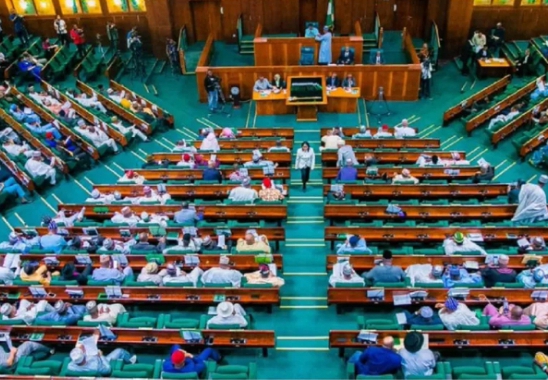Reps Pass Second Reading Bill To Establish Institute Of Agricultural, Applied Economics
•By Admin
ABUJA – The House of Representatives has passed for second reading a bill seeking to establish the Nigerian Institute of Agricultural and Applied Economics, marking a significant move toward professionalizing the field and enhancing agricultural policy formulation in the country.
The bill, co-sponsored by the Deputy Speaker, Hon. Benjamin Kalu, and eight other lawmakers, was presented during Wednesday’s plenary by Hon. Tolani Shagaya.
In his lead debate, Shagaya underscored the foundational role of agriculture in Nigeria’s economy, describing the sector as central to the country’s pursuit of economic diversification, food sufficiency, job creation, and national development.
He lamented the longstanding neglect of Agricultural and Applied Economics, asserting that many challenges confronting farmers stem from the lack of strategic economic planning rather than a deficiency in effort or commitment.
“This is more than just another institution,” Shagaya stated. “It represents a commitment to professionalism, excellence, and the elevation of standards in a vital sector that has been sidelined for far too long.”
He urged his fellow lawmakers to support the bill, stressing its broader implications beyond the profession itself. According to him, the institute would serve farmers, investors, and consumers by fostering evidence-based, sustainable agricultural practices.
Presenting the general principles of the bill, Shagaya said, “I rise today to support the establishment of the Nigerian Institute of Agricultural and Applied Economics. This body will provide regulatory oversight and set benchmarks for individuals pursuing careers in this field. Currently, these professionals operate without any statutory framework.”
He further explained that the bill aims to institutionalize the contributions of Agricultural and Applied Economists, whose work informs rural development, enterprise management, agribusiness strategies, and climate-resilient farming practices.
He acknowledged the efforts of the Nigerian Association of Agricultural Economists over the years, noting that the proposed legislation seeks to formalize their role within a legal framework, similar to what exists for professions such as engineering and accounting.
Comprising seven parts, 32 clauses, and three schedules, the bill outlines provisions for the establishment and mandate of the institute, structure and tenure of its governing council, functions of the registrar, accreditation of professionals, disciplinary processes, and other procedural guidelines.
“With the evolving complexities of global agriculture, climate variability, and food supply chains,” Shagaya concluded, “Nigeria must prioritize skilled professionals who can provide the economic insights needed to secure our agricultural future.”
•INDEPENDENTNG.

